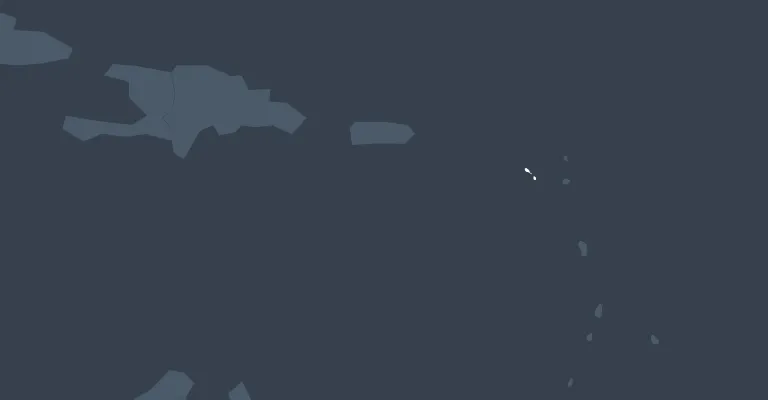
St. Kitts and Nevis
| PR Political Rights | 35 40 |
| CL Civil Liberties | 54 60 |


St. Kitts and Nevis has a history of competitive and credible elections, and civil liberties are generally upheld. There are some concerns about government corruption and transparency, and in recent years the government has struggled to contain a high rate of violent crime. LGBT+ people face discrimination and are politically marginalized.
- Concerns persisted about the country’s Citizenship by Investment (CBI) program. Authorities deactivated the CBI passport of a Chinese national who was the alleged mastermind of a $1.8 billion Bitcoin financial fraud in China. It was also disclosed that Telegram founder Pavel Durov, who was arrested in France as part of a cybercrime investigation, had a St. Kitts and Nevis CBI passport. In response, Parliament passed legislation to improve the program’s management and the country’s director of public prosecutions was asked to examine irregularities.
- The government enacted a range of measures aimed at stemming an increase in violent crime. These included judge-only trials for certain crimes, a curfew for minors, and legislation that allowed longer maximum sentences for firearm-related offences. Early evidence suggested some success in reducing crime levels.
- The Freedom of Information (Amendment) Bill approved in July introduced new mechanisms allowing members of the public and the press to access nonconfidential government information. The position of Information Commissioner was also established, to be held by either the country’s ombudsman or the special prosecutor. Legal exemptions still protect information related to national security, commercial interests, and public health.
- In June, the Anti-Smuggling of Migrants Bill was approved. The legislation established the Agency for the Prevention and Countering of the Smuggling of Migrants, and increased penalties for those involved in smuggling activities.
This report has been abridged for Freedom in the World 2025 due to ongoing budget constraints. Freedom in the World is entirely funded by nongovernmental sources such as private foundations, corporations, and individuals like you. Please consider making a donation to support future editions of this vital resource.
For additional background information, see last year’s full report.
| Was the current head of government or other chief national authority elected through free and fair elections? | 4.004 4.004 |
| Were the current national legislative representatives elected through free and fair elections? | 3.003 4.004 |
| Are the electoral laws and framework fair, and are they implemented impartially by the relevant election management bodies? | 3.003 4.004 |
| Do the people have the right to organize in different political parties or other competitive political groupings of their choice, and is the system free of undue obstacles to the rise and fall of these competing parties or groupings? | 4.004 4.004 |
| Is there a realistic opportunity for the opposition to increase its support or gain power through elections? | 4.004 4.004 |
| Are the people’s political choices free from domination by forces that are external to the political sphere, or by political forces that employ extrapolitical means? | 4.004 4.004 |
| Do various segments of the population (including ethnic, racial, religious, gender, LGBT+, and other relevant groups) have full political rights and electoral opportunities? | 3.003 4.004 |
| Do the freely elected head of government and national legislative representatives determine the policies of the government? | 4.004 4.004 |
| Are safeguards against official corruption strong and effective? | 3.003 4.004 |
| Does the government operate with openness and transparency? | 3.003 4.004 |
| Are there free and independent media? | 4.004 4.004 |
| Are individuals free to practice and express their religious faith or nonbelief in public and private? | 4.004 4.004 |
| Is there academic freedom, and is the educational system free from extensive political indoctrination? | 4.004 4.004 |
| Are individuals free to express their personal views on political or other sensitive topics without fear of surveillance or retribution? | 4.004 4.004 |
| Is there freedom of assembly? | 4.004 4.004 |
| Is there freedom for nongovernmental organizations, particularly those that are engaged in human rights– and governance-related work? | 4.004 4.004 |
| Is there freedom for trade unions and similar professional or labor organizations? | 4.004 4.004 |
| Is there an independent judiciary? | 4.004 4.004 |
| Does due process prevail in civil and criminal matters? | 3.003 4.004 |
| Is there protection from the illegitimate use of physical force and freedom from war and insurgencies? | 3.003 4.004 |
| Do laws, policies, and practices guarantee equal treatment of various segments of the population? | 3.003 4.004 |
| Do individuals enjoy freedom of movement, including the ability to change their place of residence, employment, or education? | 4.004 4.004 |
| Are individuals able to exercise the right to own property and establish private businesses without undue interference from state or nonstate actors? | 3.003 4.004 |
| Do individuals enjoy personal social freedoms, including choice of marriage partner and size of family, protection from domestic violence, and control over appearance? | 3.003 4.004 |
| Do individuals enjoy equality of opportunity and freedom from economic exploitation? | 3.003 4.004 |

Country Facts
-
Population
47,657 -
Global Freedom Score
89 100 free
